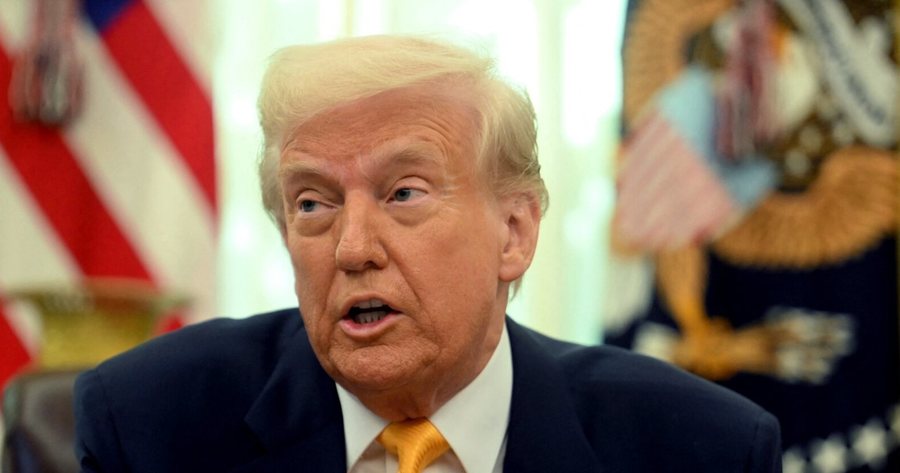
US President Donald Trump has said he wants to negotiate a nuclear deal with Iran and sent a letter to the Islamic Republic's leaders this week suggesting talks with Tehran. The West believes Iran is rapidly developing the capability to produce atomic weapons.
"I told them I hope they negotiate, because it will be a lot better for Iran," Mr. Trump said in an interview with the Fox Business channel, broadcast on Friday, A2 reports.
"I think they will appreciate that letter. The other alternative is for us to do something, because we cannot allow another nuclear weapon."
Iran has not yet received the letter, Iran's mission to the United Nations in New York said on Friday. The Foreign Ministry did not immediately respond to a request for comment on President Trump's comments.
Iran's Nour News, affiliated with the country's top security body, did not pay much attention to the letter, calling it a "repeated spectacle" by Washington.
Asked if he had sent the letter to Ayatollah Ali Khamenei, Iran's anti-Western supreme leader, Mr Trump said: "Yes."
"There are two ways to deal with Iran: militarily, or make a deal," Mr. Trump said. "I would prefer to make a deal, because I'm not trying to hurt Iran. They're wonderful people."
In the interview he gave on Thursday, Trump said he sent the letter "yesterday," meaning Wednesday.
Western officials fear that a nuclear-armed Iran could threaten Israel, Gulf Arab oil-producing countries and trigger a regional arms race. Iran denies it seeks nuclear weapons.
RUSSIAN OFFER FOR MEDIATION
President Trump has shifted US foreign policy since taking office in January, taking a more open stance toward Russia, which has unsettled Western allies as he tries to mediate to end Moscow's three-year war in Ukraine.
In 2018, a year after taking office, Mr. Trump withdrew from the Iran nuclear deal, an international agreement to prevent Iran from developing nuclear weapons.
Last month, Mr. Trump returned to his “maximum pressure” campaign on Iran that includes efforts to reduce its oil exports to zero. However, he also said he would like to make a deal with Tehran.
It is unclear how Mr. Trump's proposal to Iran would be received by US ally Israel, a staunch opponent of Tehran. Iran and Israel carried out military strikes against each other in April and October last year.
The Israeli prime minister's office has not yet responded to a request for comment regarding Mr. Trump's letter to Iran.
A source familiar with the discussions told Reuters that Russia has offered to mediate between the United States and Iran, after the Kremlin pledged to do everything possible to facilitate a peaceful resolution of tensions over Tehran's nuclear program. Russian Deputy Foreign Minister Sergei Ryabkov discussed international efforts to resolve the issue of Iran's nuclear program with Iranian Ambassador Kazem Jalali, the Russian Foreign Ministry said on Friday.
Meanwhile, top Russian missile specialists have visited Iran over the past year as the Islamic Republic has deepened defense cooperation with Moscow, according to a Reuters analysis of travel and employment data.
SANCTIONS AND DIPLOMACY
After Mr. Trump withdrew from the nuclear deal in 2018, Iran began to default on nuclear commitments under the 2015 agreement between Iran and major world powers, which lifted sanctions on Iran in exchange for restrictions on its nuclear program.
Britain, France and Germany told the United Nations Security Council in December that they are ready - if necessary - to push for the reinstatement of all international sanctions to prevent Iran from having nuclear weapons.
It is not the first time a US president has communicated with Iranian leaders. Under Iranian law, the supreme leader, not the president, has the final say on major state matters such as Iran's foreign policy and nuclear program.
When President Barack Obama took office in 2009, he offered Khamenei a direct engagement — on the condition that Iran show it was serious about addressing Western concerns about its nuclear program. Mr. Obama wrote to Khamenei directly twice, in 2009 and again in 2012.
Iranian officials acknowledged in 2014 that Tehran had responded to previous letters from President Obama, although it was not clear who had responded specifically. Iran confirmed in 2013 that President Hassan Rouhani had exchanged letters with Mr. Obama, confirming rare contact between the leaders of the two countries.
The United States and Iran severed diplomatic relations in 1980 after students and Islamic militants attacked the U.S. Embassy in Tehran and took American diplomats hostage./ Voice of America (A2 Televizion)











